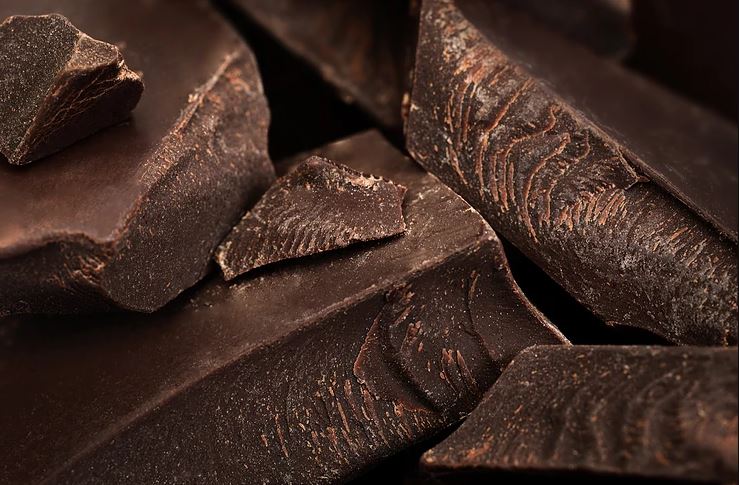Ever say these things to yourself? “I shouldn’t be eating this.” “It’s so good, it can’t possibly be good for you.” Well I have good news! Some of your guilty pleasures actually do have some health perks. Seems there is always new information coming out telling us what we should and should not eat. Remember when we were told to eat low-fat so you could lose weight? Today, new studies suggest that eating a healthy dose of good fat is actually a recommended way to help you lose weight. So what can we eat without guilt these days? Here are a list of foods that actually do have some health benefits despite their negative reputations:
Coffee
Previous research indicated that coffee caused caffeine addiction, hypertension, anxiety and was linked to increased blood sugar. Although drinking too much coffee can make you jittery and disrupt your digestive system, research now shows that drinking coffee regularly has been linked to longer life spans and decreased risk of Type 2 diabetes, stroke, dementia and Parkinson’s. Coffee is filled with antioxidants and flavonoids that have been linked to disease prevention and can help improve heart health and protect cells from the natural effects associated with aging. Other studies indicate that coffee reduces the risk of certain cancers and is shown to lower the incidence of gallstones. Just make sure you aren’t ruining all those benefits by ladening your cup of Joe with large quantities of cream and sugar.
Coffee is known to be one of the best natural pre-workout drinks as a result of the caffeine which creates a stimulant effect. This extra buzz increases metabolism and helps with fat burning, in addition to improving mental focus. Athletes were shown to train harder and for longer periods of time with the addition of moderate amounts of coffee (approx 3-4 cups per day), with evidence of faster running speeds. Coffee can also help with muscle soreness. Research indicates that drinking coffee prior to exercise can help reduce lactic acid buildup and reduce muscle pain and fatigue. When shopping, try to choose organic, sustainable, shade-grown coffee, whenever possible.
Eggs
Eggs have been wrongly accused of being bad for you, often because of the foods they are usually served with, namely high-fat sausage or crispy bacon. For many years, we have heard that eggs are high in cholesterol and can lead to heart disease. Updated research reveals that eggs are shown to increase high density lipoprotein (HDL), our good cholesterol, and that consuming whole eggs has been shown to increase metabolism. Egg yolks are found to be a good source of nutrients, such as choline, lutein, vitamin D, selenium, healthy omega-3 fats and a full range of B vitamins and amino acids so don’t just order the whites.
A study conducted in 2013 showed that high protein egg breakfasts helped control participant’s appetites better than high carb breakfasts such as cold cereal. Because of their high levels of protein and minimal carbohydrates, eggs are a great option for those on a restricted diet, including the ketogenic diet. So if you’ve been avoiding eggs because you are worried about your cholesterol, then it’s time to change your thinking. Eggs actually have less cholesterol than they did a decade ago, primarily because of changes in the diet of most commercial egg-laying hens. Cholesterol is actually pretty essential to keeping our body running, so getting it from good sources like eggs, rather than over-processed industrialized vegetable oils is a good idea. Opt for cage-free, organically fed eggs when available for an inexpensive source of protein.
Pork
I know most of you are reading this section hoping I will say that bacon is actually good for you, but alas it still is not. It is true that some forms of pork, such as bacon, ribs and ham are known to be packed with sodium and saturated fat which will only help increase the number of inches around your middle. However, eating fresh cuts of pork tenderloin can actually be a healthy choice, with benefits such as iron, zinc, 29 grams of protein, and a good source of B vitamins including vitamin B6 and niacin, which can help lower cholesterol levels.
Another pork option to consider is Canadian bacon. Although there is still a significant amount of sodium, Canadian bacon is lower in both calories and fat than traditional bacon, and still packs a protein punch. A single 1 oz. serving of Canadian bacon (2 pieces) has approximately 50 calories and 2 grams of fat, compared to regular bacon, which has about 165 calories and 14 grams of fat per ounce (i.e. about four slices of medium thickness). When choosing Canadian bacon, look for the natural uncured variety, as they won’t contain nitrates. Cured bacon (both the regular kind and Canadian type) contains nitrates, which have been linked with cancer.
Popcorn
Ordering popcorn at the movies has been a favorite pastime of many people, but the large amounts of butter and salt give this good snack a bad name. However, consuming air popped popcorn is actually quite healthy. Popcorn is packed with as many phytonutrients as some fruits, have high fiber content and is made up of 100% whole grains with just 100 calories for 3 cups with 3 grams of filling fiber. And stop complaining about those little pieces of kernel that get stuck between your teeth! Those darker hulls are concentrated with the beneficial compounds of the polyphenols, which block enzymes that cancers need to grow and can prevent inflammation and plaque buildup aiding in popcorn’s ability to help fight cancer and prevent cardiovascular disease.
Since popcorn is filled with insoluble fiber from whole grains, it may also help to relieve constipation. A 2008 study found that people who munched on popcorn regularly, had an increase in daily fiber intake by 22% and increased their intake of whole grains by an incredible margin of 250%. This high fiber content also makes this snack diabetic friendly, since it won’t cause a sudden spike in blood sugar. Along with these benefits, popcorn astoundingly has more iron than spinach! Not a lot more, but more. According to the CDC, almost 10% of women are iron deficient. So if you are someone who suffers from anemia, then it’s time to pop away! Try choosing an air-popped, organic variety, whenever possible.
Chocolate
One of the most popular “junk foods” on the planet, is chocolate. Old research indicated that chocolate resulted in an increased risk of obesity with no major health benefits, but new research has shown that chocolate is a good source of antioxidants and magnesium, as well as flavanols which can actually help reduce blood pressure. This is especially true with dark chocolate with over 70% cocoa, which has the most benefits, although milk chocolate also contains some benefits as well. Some studies even state that chocolate can increase athletic performance and reduce the risk of stroke and heart disease.
Dark chocolate decreases LDL (the “bad” cholesterol), reduces blood clots, and is associated with better cognitive performance in the elderly. A 2008 study in the American Journal of Clinical Nutrition found that overweight individuals who consumed a dark chocolate bar had improved blood vessel health and decreased blood pressure as compared with those who ate a placebo. So if you’re having a rough day, go ahead and have some chocolate. But bear in mind that all chocolate (even the dark kind) is calorie-rich, so stick with only one to two ounces per day or you may have the unwanted side effect of gaining weight. As a general rule, look for dark chocolate with a higher cacao level (60 percent cacao or higher), as that will indicate more antioxidants and less added sugar.
Cheese
If you are anything like me, then cheese is one of the essential daily food groups. But can it really be true that cheese can fit into a healthy diet? The answer is, yes, but not all cheeses are created equal. For instance, did you know that a cube of cheddar after a meal neutralizes the acids in your mouth and increases saliva production? Cheddar can actually help prevent tooth decay by helping clear food from your mouth and provides 25% of the calcium needed in your day. Cheddar is high in zinc, which can boost the immune system and helps maintain healthy skin, teeth and bones. However, cheddar cheese has a high fat & calorie content, as it is made from whole milk, so it should only be eaten in moderation.
When shopping for cheeses in your local market, it is best to choose a flavorful cheese like goat cheese, feta or Parmigiano Reggiano, so you get a powerful flavor punch using a lot less cheese. It is always best to go with a full-fat cheese over a low-fat cheese because it will be more satisfying and you’ll end up eating less. Also, keep in mind that the longer a cheese is fermented, the more lactose and casein is broken down, meaning it will be easier to digest and contain more good bacteria, increasing the B vitamins. In addition, aged cheese is more flavorful.Just like with every other food at the supermarket, ingredient quality matters. Choose a cheese made from pure milk with labels such as grass-fed and hormone- and/or antibiotic-free. As for cow vs. goat vs. sheep cheeses, one isn’t exactly “healthier” than the others, but there is evidence showing that sheep and goat cheese is more easily digested if you have a lactose sensitivity.
As for the benefits of cheese, aside from being rich in calcium, the addition of dairy to your diet can help with weight and heart health. Some studies have even found that increasing the number of dairy products you consume to 5x/day resulted in more weight loss and less abdominal fat, as well as a lowered risk of heart disease. A 2016 report analyzed results the compared how much dairy people ate to the development of cardiovascular disease. One of the major findings was that eating nearly 2 ounces of cheese daily (approx 2 in-cubes) was associated with an 18% lower risk of heart disease. Other studies indicate that eating 1.75 ounces of cheese a day may lower your risk of developing type 2 diabetes by 8% according to the American Journal of Clinical Nutrition. So that being said, pass the cheese please!
Alcohol
My second essential food group…wine! Despite its sometimes bad reputation, drinking a moderate amount of alcohol does have health benefits. Moderate consumption is defined as about one drink per day for women; two for men, and may help protect you from heart disease, kidney stones, gallstones, type 2 diabetes and certain types of cancer. Additionally, moderate alcohol consumption can help keep your brain sharp as you age. A 2011 study showed that moderate drinkers were 23% less likely to develop mental diseases, such as Alzheimer’s. In addition, red wine and dark beers are antioxidant-rich, which makes these options an even better choice.
Recent studies suggest that red wine can lower the risk of heart disease. Moderate amounts of red wine have many benefits, including raising your good cholesterol (HDL) levels and helping to prevent blood clots and plaque formation in arteries. Red wine is also rich in flavonoids and resveratrol, the antioxidants that are said to help prevent cellular damage. So raise a glass and make a toast to being heart healthy!
Keeping a healthy diet is not as difficult as it may seem when you consider that all of these seemingly poor food choices actually have some benefits when consumed moderation. Just be sure to read labels, stay away from over-processed foods and drinks, and choose organic whenever possible.
The information you need . . . straight Up!
You may also be interested in :
Why You Should Get Moving Today







